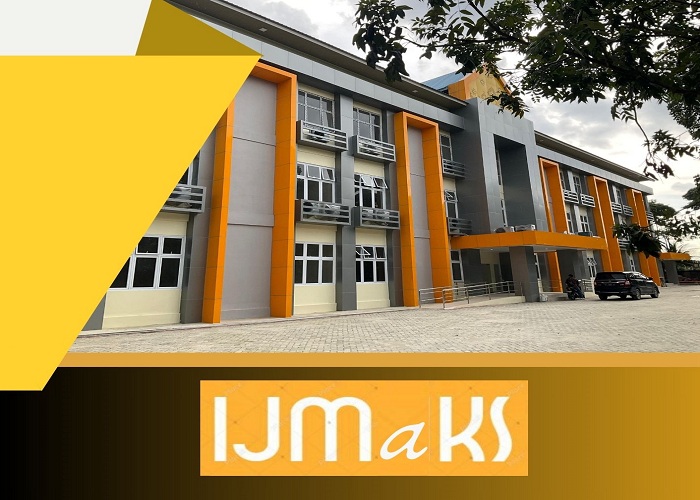OPTIMIZING THE ROLE OF ARTIFICIAL INTELLIGENCE IN ENHANCING EFFECTIVENESS OF HUMAN RESOURCE MANAGEMENT IN THE HYBRID WORK ERA
Keywords:
Human Resource, Artificial IntelligenceAbstract
Artificial Intelligence (AI) is emerging as a strategic instrument in enhancing the effectiveness of human resource management (HRM), especially in the increasingly relevant context of hybrid work. This article presents a conceptual literature study aimed at expanding theoretical and practical understanding of the role of AI in supporting HR functions such as recruitment, performance evaluation, talent development, and employee retention. Various national and international literature sources are referenced, including findings from Indonesian organizations that have begun integrating AI technologies into HRM systems. The study shows that the use of AI improves the speed and accuracy of HR decision-making, supports more objective evaluations, and enables personalized development pathways for employees in hybrid settings. However, the analysis also reveals several critical challenges such as digital inequality, resistance to technology, and ethical issues related to data privacy and algorithmic bias. These findings suggest that AI optimization in HRM must be supported by organizational readiness, ethical policies, and a human-centered design to ensure sustainable implementation. Therefore, the role of AI should be seen not as a replacement for human judgment, but as a complementary tool that enhances strategic HRM functions in digital era.
Downloads
References
A. Affandi. (2025). Manajemen Sumber Daya Manusia dalam Perspektif Kemandirian Fakultas Kedokteran Swasta: Studi Kasus pada Medical Educational Unit (MEU). Semantic Scholar. https://consensus.app/papers/manajemen-sumber-daya-manusia-dalam-perspektif affandi
Alowibdi, J. S., Khan, R. A., & Alam, M. (2022). A Hybrid AI Framework for Healthcare Workforce Scheduling. IEEE Access, 10, 38740–38753. https://doi.org/10.1109/ACCESS.2022.3169577
Catherine E. Connelly. (2021). Working in the digitized economy: HRM theory & practice.
Chamorro-Premuzic. (2020). How bad is your company? Measuring corporate wrongdoing beyond the magic of ESG metrics. Business Horizons.
Damayanti, S. (2015). Pengaruh efektivitas pengelolaan arsip dinamis terhadap efisiensi kerja. https://consensus.app/papers/pengaruh-efektivitas-pengelolaan-arsip-dinamis
Floridi, L., & Cowls, J. (2019). A Unified Framework of Five Principles for AI in Society. Minds and Machines, 29(4), 689–707. https://doi.org/10.1007/s11023-018-9482-5
Hadjri M. Arifin Z., M. M. (2023). Kapabilitas dinamik dan kompetensi SDM dalam industri halal. Jurnal Media Wahana Ekonomika, 20(1). https://doi.org/10.31851/jmwe.v20i1.11103
Jaelani, D. (2015). Nilai-nilai profetik dalam pengembangan sumber daya manusia. https://consensus.app/papers/nilainilai-profetik-dalam-pengembangan-sumber daya
Putra, A., & Sari, F. (2022). Pengembangan chatbot sebagai pelayanan administrasi SDM. https://consensus.app/papers/pengembangan-chatbot-sebagai-pelayanan-administrasi
Ricardianto A., Siregar E., P. N. (2020). Peluang dan tantangan SDM dalam pelabuhan cerdas nasional. Warta Penelitian Perhubungan, 32(1). https://doi.org/10.25104/warlit.v32i1.1524
Rosalina, R. (2019). Analisis faktor kinerja karyawan di PT Dirgantara Indonesia. https://consensus.app/papers/analisis-faktor-yang-mempengaruhi-kinerja-karyawan
Setyowati, H., Nugroho, A., & Rachmawati, D. (2021). Penerapan model adaptive learning dalam meningkatkan efektivitas pelatihan.
Sholihah, N. A. (2020). Analisis ROI koleksi perpustakaan dalam pengembangan SDM di PT Pos Indonesia. https://consensus.app/papers/analisis-return-on-ivestment-roi-koleksi-perpustakaan
Tursunbayeva, A., Pagliari, C., & Bunduchi, R. (2021). Ethics of Artificial Intelligence in Human Resource Management: A Review and Research Agenda. Journal of Business Ethics, 180(4), 1001–1020. https://doi.org/10.1007/s10551-021-04954-4
Wibowo, B., & Rahman, T. (2023). Pengaruh kecerdasan buatan dalam platform kolaborasi terhadap efisiensi kerja hybrid. https://consensus.app/papers/pengaruh-kecerdasan-buatan-dalam-platform-kolaborasi
Widodo, H. (2023). Pengaruh kecerdasan buatan terhadap kepekaan emosional manajerial. https://consensus.app/papers/pengaruh-kecerdasan-buatan-terhadap-kepekaan-emosional
Yanuarizki M., A. . R. (2017). Manajemen SDM dalam mewujudkan good university governance. https://consensus.app/papers/manajemen-sumber-daya-manusia
Zaenab H. Anwar M., S. S. (2015). Manajemen sumber daya manusia pada pendidikan anak usia dini. https://consensus.app/papers/manajemen-sumber-daya-manusia-pada-pendidikan-anak-usia-dini

Downloads
Published
How to Cite
Issue
Section
License
Copyright (c) 2025 Rifki Arohman, Abd. Rasyid Syamsuri

This work is licensed under a Creative Commons Attribution-ShareAlike 4.0 International License.


























